refinance loan

Scheduling the Closing
Effective scheduling begins with clear communication among all parties involved. Establishing a central point of contact can streamline discussions and help to manage expectations. Sharing a preliminary timeline allows everyone to visualise the proce...
Read more →
Completing the Loan Process
Pre-qualification is generally the first step in the mortgage process. It involves providing basic financial information to a lender, such as income, assets, and debts. This allows the lender to give an estimate of the loan amount you may qualify for...
Read more →
Reviewing Loan Estimates
Interest rates play a pivotal role in determining the overall cost of a loan. When rates rise, the monthly payments increase, making borrowing less affordable for consumers. Conversely, lower interest rates can significantly reduce the amount paid ov...
Read more →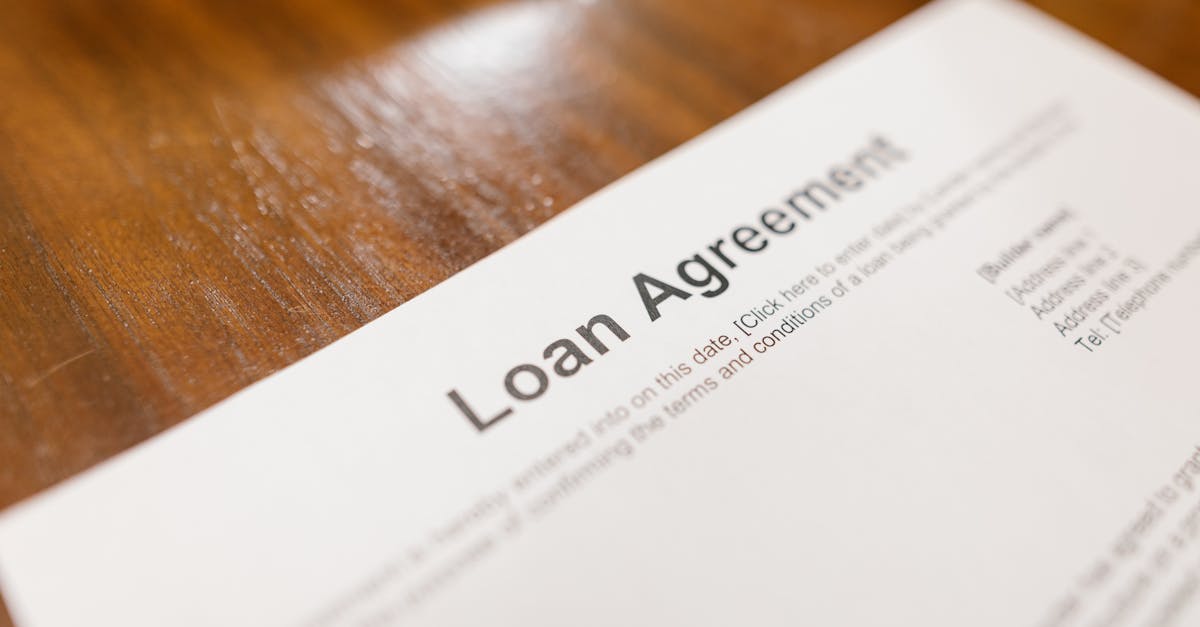
Finding a Lender
Navigating the intricacies of loan terms and conditions is crucial for any borrower. Familiarity with these details can make a substantial difference in one’s financial decisions. Key components often include the principal amount, which is the init...
Read more →
Submitting the Refinance Application
Many homeowners overlook the importance of thorough preparation before submitting a refinance application. It's common to underestimate the documentation required, leading to delays or even denial of the application. Applicants should ensure they hav...
Read more →
Getting a Credit Report
Errors in credit reports can arise from various sources, leading to significant implications for the individuals concerned. One common issue involves inaccurate personal information. This might include misspellings of names, incorrect addresses, or o...
Read more →
Preparing for Home Appraisal
Addressing any visible repairs can significantly enhance the overall appeal of your home. Focus on issues that may deter appraisers, such as leaks, cracks, or worn-out fixtures. A fresh coat of paint can breathe life into rooms, while well-maintained...
Read more →
Understanding Loan-to-Value Ratio
Loan-to-value ratio (LVR) thresholds are critical indicators used by lenders to assess the risk associated with a mortgage. Generally, an LVR of 80% is considered a standard limit for obtaining a home loan without the need for lenders mortgage insura...
Read more →
Gathering Necessary Financial Documents
Organising tax documentation can streamline the filing process and ensure compliance with regulations. Essential forms include your annual income tax return, which summarises your earnings and deductions. Additional documents such as PAYG summaries f...
Read more →
Documenting Your Income and Assets
Maintaining a clear and systematic approach to financial record-keeping is essential for effective management. Start by categorising your records into sections such as income, expenses, and assets. Each category can then be further divided by year, m...
Read more →
Qualifying for Rate-and-Term Refinance vs. Cash-Out Refinance
Refinancing can significantly influence your monthly payments, depending on the type of refinance chosen. In a rate-and-term refinance, borrowers usually aim to secure a lower interest rate or change the loan term, which can result in reduced monthly...
Read more →
Appraisal Requirements: Rate-and-Term Refinance and Cash-Out Refinance
Market conditions play a significant role in determining property values and, consequently, the outcomes of appraisals. An increase in demand for properties in a particular area can lead to higher appraised values, beneficial for homeowners seeking r...
Read more →
Repayment Terms and Options: Rate-and-Term Refinance Versus Cash-Out Refinance
Understanding personal financial goals is essential before deciding on a refinance option. Individuals should consider whether they aim to reduce monthly payments, access cash, or shorten the loan term. Each goal requires a different approach, making...
Read more →
Tax Implications of Rate-and-Term Refinance and Cash-Out Refinance
Homeowners considering refinancing must evaluate various eligibility criteria to ensure a smooth transition. Lenders typically look for a minimum credit score, which can vary significantly between institutions. A stable income and a solid employment ...
Read more →
Impact on Credit Score: Rate-and-Term Refinance Versus Cash-Out Refinance
Cash-out refinancing allows homeowners to access the equity in their properties by taking out a larger mortgage than what they currently owe. This increase in mortgage debt can significantly affect credit utilisation ratios, which are crucial for det...
Read more →
Impact on Interest Rates: Rate-and-Term Refinance vs. Cash-Out Refinance
Choosing a cash-out refinance can lead to a higher debt burden, which may strain finances. Borrowers often access a significant portion of their home equity. This can result in increased monthly payments that can outweigh the benefits of accessing ca...
Read more →
Closing Costs Comparison: Rate-and-Term Refinance and Cash-Out Refinance
When considering cash-out refinancing, borrowers should be prepared for several common fees that can arise during the process. These fees often include application fees, appraisal charges, and title insurance costs. The application fee may cover the ...
Read more →
Understanding the Equity Requirements for Rate-and-Term Refinance vs. Cash-Out Refinance
A borrower's credit score plays a significant role in determining equity requirements for refinancing options. Generally, a higher credit score may allow for lower equity thresholds, particularly with rate-and-term refinance options. Lenders often se...
Read more →
Loan-to-Value Ratio: Rate-and-Term Refinance Versus Cash-Out Refinance
Rate-and-term refinancing can provide significant cost savings for homeowners looking to adjust their mortgage terms. By securing a lower interest rate, borrowers can reduce their monthly payments, leading to easier budget management. This approach o...
Read more →
Loan Purpose and Differences Between Rate-and-Term Refinance and Cash-Out Refinance
Rate-and-term refinance can lead to significant savings on monthly mortgage payments. Homeowners often take advantage of lower interest rates available in the market. This refinancing option allows them to secure a better rate while keeping the loan ...
Read more →
Evaluating the Risk Factors of Rate-and-Term Refinance
Understanding the loan-to-value (LTV) ratio is crucial for both borrowers and lenders when considering rate-and-term refinancing. The LTV ratio compares the amount of the loan to the appraised value of the property, playing an essential role in deter...
Read more →
Exploring the Short-Term Drawbacks of Rate-and-Term Refinance
Changing loan structures can lead to the loss of specific benefits tied to the original loan. Many borrowers initially select loans with features such as lower interest rates, no fees for early repayment, or adjustable rates that may become advantage...
Read more →
Analyzing the Long-Term Benefits of Rate-and-Term Refinance
Refinancing presents a valuable chance for homeowners to streamline their debts. By consolidating multiple liabilities into a single loan, individuals can reduce their overall interest payments and simplify their financial management. This approach n...
Read more →
Understanding the Flexibility of Rate-and-Term Refinance
Refinancing a mortgage can involve various costs that borrowers should anticipate. These expenses can include application fees, appraisal costs, and legal fees, which may vary depending on the lender and specific loan terms. Borrowers may need to pay...
Read more →
Tax Implications of Rate-and-Term Refinance
Lenders serve as intermediaries in the refinancing process, offering various loan products tailored to the needs of borrowers. They assess creditworthiness and provide guidance on the most suitable options available, often facilitating a smoother tra...
Read more →
Impact of Rate-and-Term Refinance on Loan Term
When contemplating refinancing, it is essential to evaluate your current financial situation. A thorough assessment of your credit score can significantly influence the terms and rates available to you. Lenders typically offer better conditions to th...
Read more →
Comparing the Cost Savings of Rate-and-Term Refinance
When considering a rate-and-term refinance, various closing costs play a significant role in the overall expenses. These costs can include lender fees, appraisal fees, title insurance, and other related charges necessary to process the refinancing ap...
Read more →
Considerations Before Opting for Rate-and-Term Refinance
Building equity in a home is a significant factor for homeowners considering refinancing options. When opting for a rate-and-term refinance, the primary goal is often to secure a lower interest rate or alter the loan term, both of which can impact th...
Read more →
Disadvantages of Rate-and-Term Refinance
When considering rate-and-term refinancing, it's crucial to understand its impact on your credit score. Each time a lender conducts a hard inquiry on your credit report, it can lead to a temporary decrease in your score. This drop usually occurs beca...
Read more →
Advantages of Rate-and-Term Refinance
Refinancing can lead to potential tax advantages for many homeowners. Mortgage interest deductions may still apply after a rate-and-term refinance. This deduction can significantly reduce taxable income, resulting in a lower overall tax bill. Underst...
Read more →
Considerations for Non-Owner Occupied Properties in Rate-and-Term Refinance
A strong credit score is crucial when considering a rate-and-term refinance for non-owner occupied properties. Lenders often use this score as a primary metric to evaluate the risk associated with a borrower. Generally, a score above 620 is considere...
Read more →
Eligibility for Veterans Affairs (VA) Rate-and-Term Refinance
Credit scores play a significant role in determining eligibility for VA rate-and-term refinancing. Lenders assess creditworthiness to gauge the likelihood of repayment. A higher credit score generally indicates a lower risk, which can lead to more fa...
Read more →
Eligibility for Government-Backed Rate-and-Term Refinance Programs
Lenders typically have specific credit score thresholds that borrowers must meet to qualify for government-backed refinance programs. A score above 620 often increases the chances of approval; however, various factors may influence the decision. Pote...
Read more →
Documentation Needed for Rate-and-Term Refinance Approval
Adequate property documentation is essential for a smooth rate-and-term refinance process. Lenders typically require a thorough assessment of the property involved in the refinance. This includes proof of ownership, property tax statements, and any r...
Read more →
Loan-to-Value Ratio Parameters for Rate-and-Term Refinance
One effective way to enhance a loan-to-value ratio is by increasing the overall equity in your property. This can be achieved through home improvements that elevate the property’s value. Focusing on renovations that are high in demand, such as kitc...
Read more →
Employment History Criteria for Rate-and-Term Refinance
Job changes can significantly influence the refinancing process. Lenders often scrutinise the stability and consistency of a borrower’s employment history. A recent change in job might raise questions about an applicant's ability to maintain consis...
Read more →
Debt-to-Income Ratio Standards for Rate-and-Term Refinance
Improving your debt-to-income ratio involves careful management of both income and expenses. One effective strategy is to increase your earnings, which can be achieved by pursuing additional work opportunities or seeking a promotion within your curre...
Read more →
Property Appraisal Guidelines for Rate-and-Term Refinance
Property appraisals utilise several methods to determine a property's market value. Two of the most prevalent approaches are the comparative market analysis (CMA) and the cost approach. The CMA evaluates recent sales of similar properties in the area...
Read more →
Income Verification for Rate-and-Term Refinance Eligibility
Self-employment income verification requires a comprehensive understanding of both income sources and accounting practices. Typically, lenders seek documentation such as tax returns from the past two years, profit and loss statements, and bank statem...
Read more →
Minimum Credit Score Requirements for Rate-and-Term Refinance
Homeowners seeking options beyond rate-and-term refinance can consider cash-out refinancing. This alternative allows homeowners to access equity from their property while potentially lowering their overall mortgage interest rate. The proceeds can be ...
Read more →
Rate-and-Term Refinance: Unpacking the Details
While rate-and-term refinancing offers numerous advantages, it is essential to consider some potential drawbacks. One significant concern may be the costs associated with refinancing. Fees such as application costs, appraisal charges, and other closi...
Read more →
Rate-and-Term Refinance: The Basics
Interest rates play a crucial role in determining the overall cost of a refinance. When considering a rate-and-term refinance, borrowers may seek to lower their interest rate to reduce monthly payments or alter the loan's term for potential savings o...
Read more →
An In-Depth Look at Rate-and-Term Refinance
When exploring options for a rate-and-term refinance, comparing lenders and their respective rates is crucial. Each financial institution may offer different terms, interest rates, and closing costs. It's essential to consider both traditional banks ...
Read more →
Rate-and-Term Refinance: What You Need to Know
When considering a rate-and-term refinance, it's important to be aware of various costs that may arise. These can include application fees, appraisal fees, credit report fees, and title search fees. Each of these costs can add a significant amount to...
Read more →
Nuts and Bolts of Rate-and-Term Refinance
The rate-and-term refinance process requires specific documentation to ensure a smooth application. Borrowers will need personal identification, like a driver's licence or passport. Proof of income is essential, which can be demonstrated through rece...
Read more →
Rate-and-Term Refinance: A Comprehensive Overview
When pursuing a rate-and-term refinance, it is important to understand the potential influence on your credit score. Lenders may conduct a hard inquiry to evaluate your creditworthiness during the application process. Such inquiries can temporarily l...
Read more →
Components of Rate-and-Term Refinance
A key metric in determining eligibility for a rate-and-term refinance is the loan-to-value (LTV) ratio. This calculation compares the amount of the existing mortgage to the appraised value of the property. Generally, a lower LTV ratio indicates less ...
Read more →
Exploring the Benefits of Rate-and-Term Refinance
Refinancing a loan can significantly enhance the overall terms of a mortgage. Homeowners often seek better interest rates or switch from an adjustable-rate mortgage to a fixed-rate option, providing them with predictability in their monthly payments....
Read more →
Post-Approval Checklist for Cash-Out Refinance Loan
Navigating the application process for a cash-out refinance loan involves several key stages that borrowers need to understand. Initially, individuals should gather relevant financial documentation, which typically includes income statements, tax ret...
Read more →
Understanding Rate-and-Term Refinance
Refinancing your mortgage involves various costs that should be carefully considered before proceeding. Lenders may charge fees for processing the new loan. Common expenses include application fees, appraisal fees, and title search fees. Additionally...
Read more →
Key Features of Rate-and-Term Refinance
Refinancing a mortgage can lead to fluctuations in your credit score. When you apply for a new loan, lenders typically conduct a hard inquiry on your credit report. This inquiry may cause a temporary dip in your score. Additionally, if your credit ut...
Read more →
Timeline for Approval and Funding of Cash-Out Refinance Loan
Credit scores serve as a critical factor in evaluating an applicant's ability to repay a cash-out refinance loan. Lenders typically review these scores to assess the risk associated with lending money. A higher credit score suggests a history of resp...
Read more →
Choosing the Right Lender for Cash-Out Refinance Loan
Securing pre-approval for a cash-out refinance loan serves as a crucial step in the financing process. It provides borrowers with a clear understanding of how much they can borrow, making it easier to budget for renovations or debt consolidation. Len...
Read more →
Closing Costs Associated with Cash-Out Refinance Loan
When engaging in a cash-out refinance, borrowers should anticipate recording fees. These fees are typically charged by local or state governments to officially record the new mortgage details in the public land records. The cost of these fees can var...
Read more →
Credit Check and Score Requirements for Cash-Out Refinance Loan
A strong credit score is essential for securing favourable terms on a cash-out refinance loan. To enhance your rating, it's important to understand the factors that contribute to your overall score. Payment history plays a critical role, so consisten...
Read more →
Income Verification for Cash-Out Refinance Loan
Lenders take various approaches to assess an applicant's income when processing a cash-out refinance loan. They typically start by gathering documentation that confirms income sources, including pay stubs, tax returns, and bank statements. Lenders al...
Read more →
Appraisal Process for Cash-Out Refinance Loan
Property values are influenced by various elements that can significantly affect appraisal outcomes. Location remains paramount, as properties in desirable neighbourhoods typically command higher prices due to access to amenities, schools, and transp...
Read more →
Steps to Apply for a Cash-Out Refinance Loan
Loan estimates provide a detailed breakdown of potential costs associated with a cash-out refinance loan. These documents are typically issued by lenders within three business days of receiving a loan application. They outline key financial aspects s...
Read more →
Understanding Cash-Out Refinance Loan-to-Value Ratio
To determine your loan-to-value (LTV) ratio, start by finding the current market value of your property. You can obtain this figure through a professional appraisal, online real estate platforms, or regional market analyses. Once you have the propert...
Read more →
Documents Required for Cash-Out Refinance Loan Application
Providing accurate mortgage statements is a critical step in the cash-out refinance loan application process. Lenders require these documents to evaluate your existing mortgage obligations and assess your overall financial situation. These statements...
Read more →
Choosing the Right Option: Cash-Out Refinance vs. Home Equity Loan
While home equity loans can provide quick access to cash, they also come with potential drawbacks that borrowers should consider. One significant concern is that these loans typically come with higher interest rates compared to primary mortgages. Thi...
Read more →
Credit Score Impact: Cash-Out Refinance vs. Home Equity Loan
In evaluating borrowing options, interest rates play a crucial role in determining the overall cost of the loan. Generally, cash-out refinances tend to offer lower interest rates compared to home equity loans. This is primarily because a cash-out ref...
Read more →
Flexibility of Use: Cash-Out Refinance vs. Home Equity Loan
When comparing cash-out refinancing and home equity loans, interest rates play a crucial role in decision-making. Cash-out refinancing typically offers a lower interest rate than a standard home equity loan. This is because the cash-out option is int...
Read more →
Tax Implications: Cash-Out Refinance vs. Home Equity Loan
Engaging in a cash-out refinance allows homeowners to tap into the equity they have built up in their property. This process involves replacing an existing mortgage with a new, larger one, effectively freeing up cash for various uses. The additional ...
Read more →
Repayment Terms: Cash-Out Refinance vs. Home Equity Loan
Mortgage options significantly influence monthly payments. A cash-out refinance typically replaces an existing loan with a new, larger one. This results in a different interest rate and repayment terms, which can either increase or decrease monthly o...
Read more →
Loan Amount Limits: Cash-Out Refinance vs. Home Equity Loan
To qualify for a home equity loan, borrowers typically need to demonstrate a solid credit history. Lenders often look for a minimum credit score, which may vary between institutions but usually falls within the range of 600 to 700. Additionally, pote...
Read more →
Eligibility Requirements for Cash-Out Refinance vs. Home Equity Loan
In the context of home equity loans, the loan-to-value (LTV) ratio is a critical metric that lenders consider. This ratio is calculated by comparing the amount of the loan to the appraised value of the property. Typically, lenders prefer a lower LTV ...
Read more →
Comparing Interest Rates: Cash-Out Refinance vs. Home Equity Loan
When considering cash-out refinance and home equity loan options, it is essential to assess the associated fees and closing costs. A cash-out refinance typically involves more significant upfront costs. Lenders may charge fees for application process...
Read more →
Drawbacks of Cash-Out Refinance vs. Home Equity Loan
Home equity loans can pose significant risks for borrowers. One of the primary concerns is that homeowners put their property at stake. If they default on these loans, lenders can initiate foreclosure proceedings. This scenario can be particularly di...
Read more →
Explaining the Mechanics of Cash-Out Refinance
When considering a cash-out refinance, it is crucial to understand the various costs involved. Typically, homeowners encounter fees such as application fees, appraisal costs, and closing costs. These expenses can vary significantly depending on the l...
Read more →
Utilizing Cash-Out Refinance for Financial Goals
When considering a cash-out refinance, it is essential to be aware of the various costs that can arise during the process. These costs typically include application fees, appraisal fees, and closing costs. Lenders may also charge origination fees and...
Read more →
Benefits of Cash-Out Refinance vs. Home Equity Loan
Both cash-out refinancing and home equity loans can have noticeable effects on your credit score. Applying for either option typically involves a hard inquiry on your credit report which may lead to a temporary dip in your score. However, if you mana...
Read more →
Making Informed Decisions When Considering Cash-Out Refinance
When exploring options for accessing home equity, it is essential to weigh cash-out refinance against alternatives like home equity loans or lines of credit. A cash-out refinance replaces an existing mortgage with a new loan for a larger amount, allo...
Read more →
Factors to Consider Before Opting for Cash-Out Refinance
Cash-out refinancing can lead to a significant shift in your monthly financial commitments. By converting a portion of your home equity into cash, you may end up with a higher loan balance. This increase can translate to elevated monthly payments, es...
Read more →
Navigating the Application Process for Cash-Out Refinance
When applying for a cash-out refinance, several essential documents are required to streamline the approval process. Homeowners will need to provide proof of income, which can include pay stubs, W-2 forms, or tax returns if self-employed. Additionall...
Read more →
Common Misconceptions About Cash-Out Refinance
Many borrowers believe that their credit score must be perfect to secure a cash-out refinance. While a higher credit score can indeed improve mortgage terms, lenders typically consider various factors during the approval process. These factors may in...
Read more →
Maximizing Your Home's Equity Through Cash-Out Refinance
Cash-out refinancing can lead to an increase in your monthly mortgage payment, primarily due to a higher loan amount taken against the equity in your home. When you convert a portion of your home's equity into cash, your new mortgage replaces the exi...
Read more →
Exploring the Benefits of Cash-Out Refinance
When considering a cash-out refinance, it is essential to assess your financial situation and the equity you have built in your home. Lenders typically require you to have at least 20% equity in the property to qualify for a cash-out refinance. This ...
Read more →
Steps to Take for a Successful Cash-Out Refinance
Applying for a cash-out refinance involves assessing your current financial situation and determining if this option aligns with your goals. Gather necessary documentation, such as proof of income, tax returns, and details of your existing mortgage. ...
Read more →
Understanding the Basics of Cash-Out Refinance
Cash-out refinance and other financing options each come with unique advantages and drawbacks. With a cash-out refinance, homeowners have the opportunity to tap into their property's equity while potentially securing a lower interest rate on the new ...
Read more →
Weighing the Advantages and Disadvantages of Cash-Out Refinance
Applying for cash-out refinance involves several steps that homeowners must navigate to access funds from their property’s equity. Initially, gathering necessary documentation is crucial. This includes income verification, bank statements, and info...
Read more →
The Downside of Cash-Out Refinance
A cash-out refinance can significantly influence an individual's credit score. When borrowers take out additional funds through this process, it often leads to an increase in their overall debt-to-income ratio. Lenders assess this ratio to determine ...
Read more →
Maximizing the Benefits of Cash-Out Refinance
Many homeowners rush into a cash-out refinance without fully understanding the long-term implications. One common mistake is failing to consider how the extra funds will be used. Using the cash for non-essential expenses can lead to financial strain....
Read more →
Evaluating the Pros and Cons of Cash-Out Refinance
Finding a lender that best suits your needs is essential in the cash-out refinance process. Start by researching various financial institutions, including banks and credit unions. Look for those that have a strong reputation for customer service and ...
Read more →
Drawbacks of Cash-Out Refinance
Opting for a cash-out refinance often results in extending the length of your loan. Homeowners may find themselves locked into a mortgage that could last an additional 15 to 30 years. While this might seem attractive initially, it can significantly a...
Read more →
Benefits of Cash-Out Refinance
Homeowners often overlook the potential tax advantages associated with cash-out refinancing. The interest paid on the portion of the mortgage that is used for home improvements may be tax-deductible. This can lead to significant savings, especially i...
Read more →
Risks of Cash-Out Refinance
When considering a cash-out refinance, borrowers should be aware of the various closing costs and fees involved in the process. These expenses can include lender fees, appraisal fees, title insurance, and settlement costs. It is essential to review t...
Read more →
When to Consider Cash-Out Refinance
When considering a cash-out refinance, it is crucial to understand the various costs involved in the process. Lenders usually charge application fees, appraisal fees and closing costs. These expenses can vary significantly between lenders and can imp...
Read more →
Disadvantages of Cash-Out Refinance
When considering a cash-out refinance, borrowers must be aware of the potential for interest rates to change. Fixed rates provide certainty, but many refinancing options come with adjustable rates that can lead to increasing monthly payments over tim...
Read more →
Advantages of Cash-Out Refinance
Cash-out refinance can significantly enhance monthly cash flow. Homeowners have the opportunity to replace their existing mortgage with a larger loan, accessing the equity built up in their property. By doing this, they can free up additional funds t...
Read more →
Eligibility for Cash-Out Refinance with Condominiums or Co-ops
Financing a co-operative apartment differs significantly from conventional home refinancing processes. Co-ops are owned collectively by shareholders who possess shares in the corporation rather than owning individual units outright. This collective o...
Read more →
Eligibility for Cash-Out Refinance with Government-Backed Loans
Debt-to-income ratio is a crucial factor when applying for a cash-out refinance. This ratio is derived by dividing your monthly debt payments by your gross monthly income. Lenders typically prefer a DTI ratio of 43% or lower, although some flexible g...
Read more →
Eligibility for Cash-Out Refinance with Multiple Mortgages
Lenders assess various factors when evaluating applications for cash-out refinancing, especially for borrowers with multiple mortgages. They typically scrutinise the property's equity, which serves as collateral for the refinancing loan. A significan...
Read more →
Eligibility for Cash-Out Refinance on Investment Properties
When seeking a cash-out refinance on an investment property, thorough financial documentation is essential for lenders to assess the borrower's eligibility. Common requirements typically include proof of income, recent bank statements, and tax return...
Read more →
Documentation Needed for Cash-Out Refinance Eligibility
A crucial aspect of the cash-out refinance process is the property appraisal, which assesses the current market value of the home. This evaluation serves as a basis for the lender to determine how much equity a homeowner can access. Licensed appraise...
Read more →
Property Value Requirements for Cash-Out Refinance Eligibility
Loan-to-value (LTV) ratios are crucial for lenders when assessing eligibility for cash-out refinancing. Typically, lenders prefer a maximum LTV ratio of 80%. This means homeowners can borrow up to 80% of their property's current value when refinancin...
Read more →
Employment History Criteria for Cash-Out Refinance Eligibility
Lenders require confirmation of an applicant's employment status to assess their ability to repay a refinance loan. This verification process typically involves reaching out directly to the employer. Such communication can clarify the nature of emplo...
Read more →
Income Verification for Cash-Out Refinance Eligibility
Self-employed individuals face distinct challenges when it comes to income verification for cash-out refinancing. Unlike their salaried counterparts, they often lack the consistent pay stubs and tax documentation that lenders typically require. Inste...
Read more →
Debt-to-Income Ratio Guidelines for Cash-Out Refinance Eligibility
Assessing your current financial situation is an essential first step towards improving your debt-to-income ratio. Start by listing all monthly debts, including mortgages, car loans, credit card payments, and student loans. Calculate your total month...
Read more →
Minimum Credit Score Requirements for Cash-Out Refinance Eligibility
A solid credit score can be pivotal for securing favourable terms in financial transactions. To elevate your credit score, start by reviewing your credit report for any inaccuracies. Familiarising yourself with your report can help identify errors th...
Read more →
Jumbo Refinance Closing Costs: What to Expect
When refinancing a jumbo loan, borrowers should be aware of various third-party costs that can add to the overall expenses. These costs often include fees for appraisals, title searches, and inspections. Engaging a qualified appraiser ensures the len...
Read more →
Refinancing a Jumbo Loan: Common Mistakes to Avoid
When considering refinancing a jumbo loan, many borrowers overlook the importance of the pre-approval process. Obtaining pre-approval offers a clear picture of financial eligibility and helps establish a budget. It provides an opportunity to understa...
Read more →
Jumbo Refinance Loan Rates: Factors Affecting Your Interest Rate
Jumbo refinance loan rates are significantly shaped by prevailing market conditions. Factors such as supply and demand, inflation expectations, and the overall economic environment can lead to fluctuations in interest rates. When there is heightened ...
Read more →
Top Lenders for Jumbo Refinance Loans
Refinancing a jumbo loan involves several critical steps that borrowers must navigate carefully. Initially, the homeowner should review their existing mortgage terms to understand what they aim to accomplish with refinancing. Whether it’s lower int...
Read more →
Jumbo Cash-Out Refinance: What You Need to Know
Interest rates play a significant role in determining the overall cost of a jumbo cash-out refinance. Factors such as market conditions, the borrower's credit score, and the loan-to-value ratio influence the rates offered by lenders. In general, jumb...
Read more →
Jumbo Refinance Loan Limits and Requirements
Applying for a jumbo refinance entails gathering various types of documentation to ensure a smooth process. Borrowers typically need to provide proof of income, which can include recent pay stubs, bonus statements, and tax returns from the previous t...
Read more →
How to Qualify for a Jumbo Refinance Loan
A property appraisal is a crucial step in the refinance process for a jumbo loan. The appraisal determines the current market value of the property, which lenders will assess to gauge the level of risk involved in financing the loan. This process inv...
Read more →
Understanding Jumbo Refinance: A Comprehensive Guide
Interest rates for jumbo loans tend to be higher than those for conforming loans due to the increased risk associated with larger loan amounts. Lenders often consider various factors, including the potential for default and the borrower’s financial...
Read more →
Jumbo Refinance vs. Conventional Refinance: Key Differences
When pursuing a jumbo refinance, borrowers typically face higher down payment requirements compared to conventional loans. Lenders often expect a minimum down payment of 20% for jumbo loans, reflecting the larger loan amounts and associated risks. Th...
Read more →
Potential Pitfalls of USDA Refinance
A crucial part of the USDA refinance process is the appraisal. This assessment verifies the current market value of the property, ensuring that the loan amount aligns with what the home is worth. Lenders depend on this information to mitigate risk. I...
Read more →
Pros and Cons of Jumbo Refinance Loans
High-value properties often come with unique financing challenges. For buyers in this market segment, jumbo refinance loans provide an opportunity to access larger amounts of capital that may not be available through conventional lending products. Th...
Read more →
Maximizing Savings with USDA Refinance
Navigating the complexities of USDA refinances can present various challenges for homeowners. One significant issue is the misunderstanding of eligibility requirements. Many borrowers assume they can qualify based solely on property location, ignorin...
Read more →
Common Misconceptions About USDA Refinance
USDA loans come with specific limits regarding the amount that can be borrowed. These limits vary based on the area’s average median income, which means that eligibility can differ significantly depending on the location. Borrowers should be aware ...
Read more →
Step-by-Step Guide to USDA Refinance Process
The first step in the application process involves gathering all necessary documents. This typically includes your current mortgage statement, proof of income, tax returns, bank statements, and any other financial documentation relevant to your situa...
Read more →
Exploring USDA Streamline Refinance
Refinancing under the USDA Streamline program can have varying effects on an individual’s credit score. Generally, the act of refinancing involves a credit inquiry, which may temporarily lower the score. However, if managed responsibly, the overall...
Read more →
USDA Refinance vs. Other Loan Options
FHA loans can serve as a viable alternative for those considering refinancing options beyond USDA loans. Designed to make homeownership more accessible, these loans are particularly beneficial for first-time buyers. With relatively low down payment r...
Read more →
How to Apply for USDA Refinance
When considering a USDA refinance, it’s essential to evaluate the associated costs and fees thoroughly. Standard expenses include the application fee, which may vary depending on the lender, along with appraisal fees that assess your property's mar...
Read more →
Benefits of USDA Refinance Loan
Refinancing through the USDA offers homeowners the chance to secure more favourable loan conditions. With options for lower interest rates, borrowers can significantly reduce the overall cost of their mortgage. The streamlined process can also shorte...
Read more →
Eligibility Criteria for USDA Refinance
Various loan types are eligible for refinancing through the USDA program, aiming to help borrowers secure more favourable terms. The most common options include Direct Loans and Guaranteed Loans. Each type comes with its own specifications; for insta...
Read more →
Understanding USDA Refinance Requirements
Credit scores play a crucial role in the approval process for USDA loans. Lenders typically require a minimum credit score, which serves as an indicator of a borrower’s creditworthiness. A higher score generally reflects responsible credit behaviou...
Read more →
Factors to Consider Before Committing to a Conventional Refinance
Understanding the broader economic landscape is crucial when contemplating a conventional refinance. Interest rates, inflation rates, and economic growth all play pivotal roles in determining the ideal timing for refinancing. A decrease in interest r...
Read more →
The Role of Credit Score in Conventional Refinance
A credit report serves as a vital tool in the refinancing process, providing lenders with a detailed overview of an individual's credit history. It includes information such as payment history, outstanding debts, and the types of credit accounts held...
Read more →
Determining If a Conventional Refinance is Right for You
When considering a mortgage, understanding the various loan types available is essential. Conventional loans are typically characterised by their stricter requirements, which may include higher credit score limits and a more substantial down payment....
Read more →
Tips for Finding the Best Conventional Refinance Lender
Customer reviews can provide valuable insights into the experiences of others with various lenders. Look for feedback on platforms such as Google Reviews, social media, and specialised finance forums. This information can reveal patterns related to c...
Read more →
Exploring Conventional Cash-Out Refinance
Homeowners often explore various refinancing options when trying to access cash or lower their mortgage rates. Conventional cash-out refinancing provides borrowers the opportunity to tap into their home equity. This option typically comes with fixed ...
Read more →
The Process of Applying for a Conventional Refinance
The application process for a conventional refinance begins with gathering essential information about your financial status and property details. Lenders typically require documentation that outlines your income, employment history, assets, liabilit...
Read more →
Conventional Refinance vs. Other Loan Options
Jumbo loans are a type of mortgage that surpasses the conforming loan limits set by the Australian government. These limits vary depending on the area but typically pertain to loans exceeding a specific amount that is deemed acceptable for government...
Read more →
Benefits of Choosing a Conventional Refinance
Refinancing through a conventional loan often involves a simplified application process compared to other financial options. Lenders typically require less documentation, making it easier for homeowners to gather the necessary information. This effic...
Read more →
Qualifying for a Conventional Refinance Loan
The property appraisal process is a crucial step in securing a conventional refinance loan. An appraiser evaluates the home's value based on various factors, including recent sales of similar properties in the area, the home's condition, and market t...
Read more →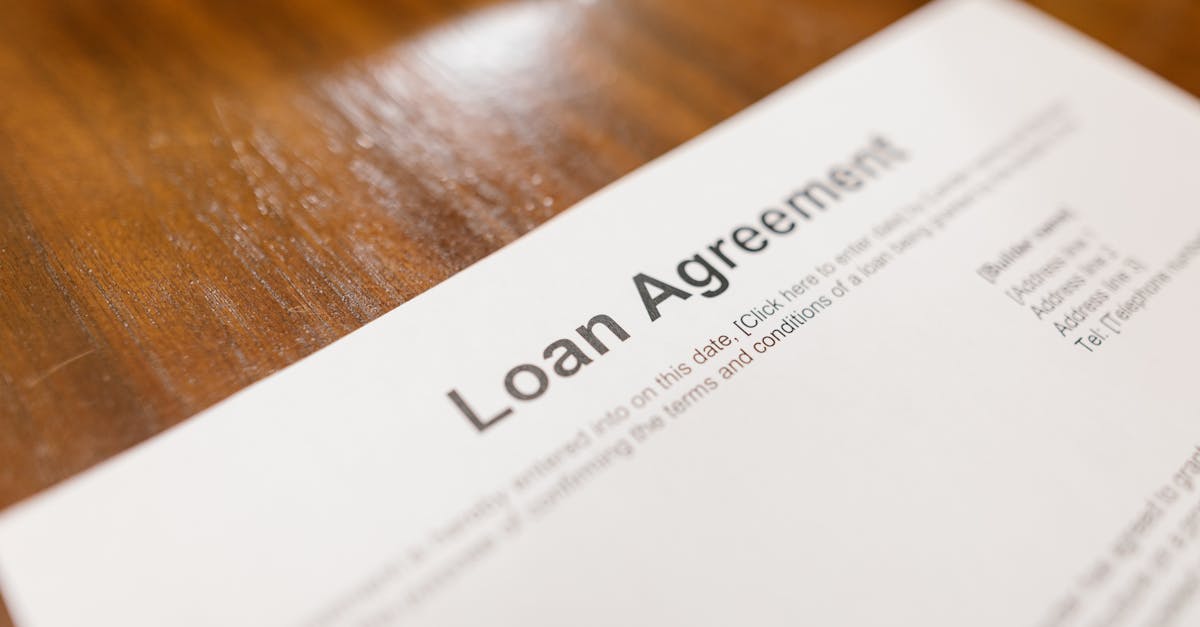
Understanding Conventional Refinance: What You Need to Know
Numerous misconceptions surround the concept of conventional refinancing, leading many homeowners to hesitate. One prevalent myth suggests that refinancing always results in losing your equity. In reality, refinancing can actually enhance equity thro...
Read more →
Using VA IRRRL Refinance to Lower Monthly Mortgage Payments
Refinancing through the VA IRRRL can involve various costs that borrowers should be aware of. Although there is no need for a formal appraisal or credit underwriting process, there will still be associated fees. These can include the VA funding fee, ...
Read more →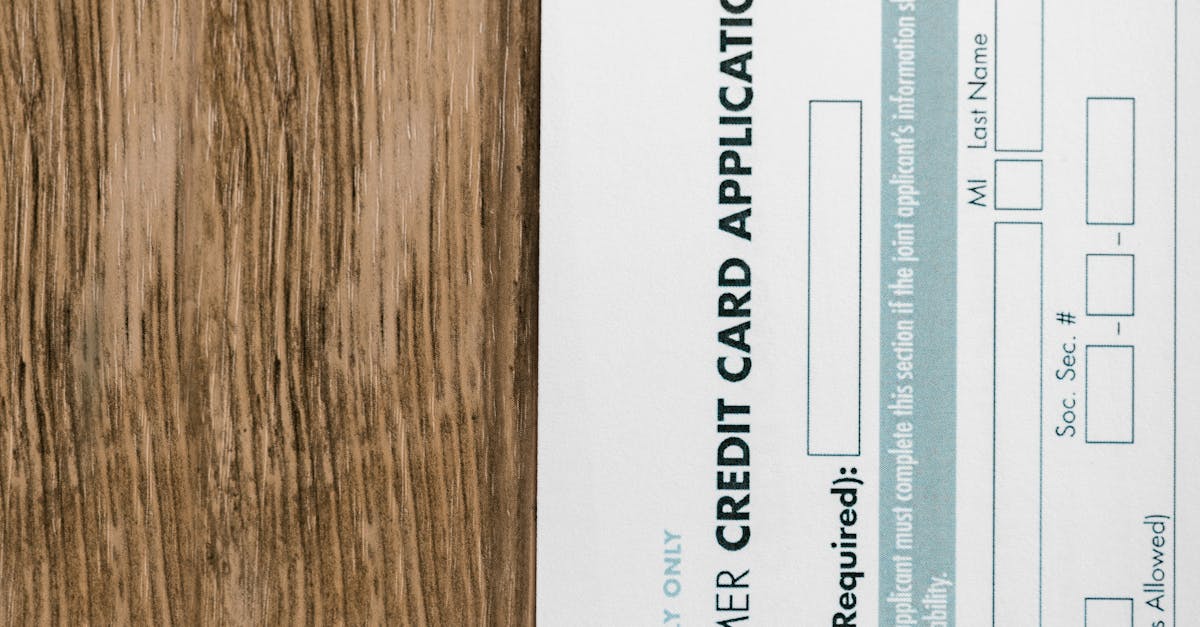
VA IRRRL Refinance: Simplified Documentation Requirements
Interest rates play a crucial role in determining the overall cost of a loan. For homeowners seeking to lower their monthly payments, securing a lower interest rate can lead to significant savings over the loan's duration. The VA IRRRL program enable...
Read more →
Common Misconceptions about VA IRRRL Refinance
Veterans Affairs Interest Rate Reduction Refinance Loans (VA IRRRL) present unique opportunities for eligible veterans to lower their interest rates without facing the stringent credit requirements typical of other refinancing options. While a credit...
Read more →
Tips for Finding the Best Lender for VA IRRRL Refinance
Researching lender reviews offers valuable insights into the experiences of other borrowers. Look for feedback across multiple platforms, including dedicated financial websites and social media. High ratings and positive comments often indicate a rel...
Read more →
VA IRRRL Refinance: Closing Costs and Fees
Credit scores play a significant role in the VA IRRRL refinancing process. Although the program is designed to be more lenient than traditional refinancing options, lenders will still assess an applicant’s credit history and score. A higher credit ...
Read more →
Comparing VA IRRRL Refinance vs. Conventional Refinance
The costs and fees involved in VA IRRRL refinancing tend to be lower compared to those associated with conventional refinancing. VA loans generally do not require an appraisal or credit underwriting package, significantly reducing upfront expenses. H...
Read more →
How to Apply for a VA IRRRL Refinance Loan
When considering a VA IRRRL refinance loan, understanding the associated costs and fees is crucial. Borrowers typically encounter expenses such as funding fees, appraisal costs, and closing fees. While the VA does offer certain concessions, some fees...
Read more →
Benefits of VA IRRRL Refinance for Veterans
The VA IRRRL refinance process is designed to be swift and efficient, offering a distinct advantage for veterans seeking to lower their mortgage rates. With streamlined documentation requirements and fewer steps compared to traditional refinancing op...
Read more →
Eligibility Requirements for VA IRRRL Refinance
Income verification is a vital component of the VA IRRRL refinancing process. Lenders typically require borrowers to provide documentation that substantiates their income levels. This could include recent pay stubs, W-2 forms, or alternative sources ...
Read more →
Understanding the VA Interest Rate Reduction Refinance Loan (IRRRL) Program
Refinancing through the VA Interest Rate Reduction Refinance Loan can have varying effects on credit scores. When borrowers opt for this program, a hard inquiry typically occurs, which may cause a slight dip in their score. However, the impact is oft...
Read more →
FHA Streamline Refinance: Is it the Right Option for You?
When considering an FHA Streamline Refinance, it's essential to be aware of the various costs involved. While this refinancing option is designed to simplify the process and reduce expenses, certain fees still apply. These may include an upfront mort...
Read more →
FHA Streamline Refinance for Homeowners with Low Credit Scores
Homeowners exploring refinancing options often focus on how their monthly payments will be affected. FHA Streamline Refinance can significantly reduce these payments, especially for those with existing FHA loans. This program typically allows lower i...
Read more →
FHA Streamline Refinance for Manufactured Homes
Interest rates for FHA Streamline refinancing can be significantly lower than those available for traditional loans. This reduction is particularly advantageous for homeowners seeking to reduce their monthly mortgage payments. The program simplifies ...
Read more →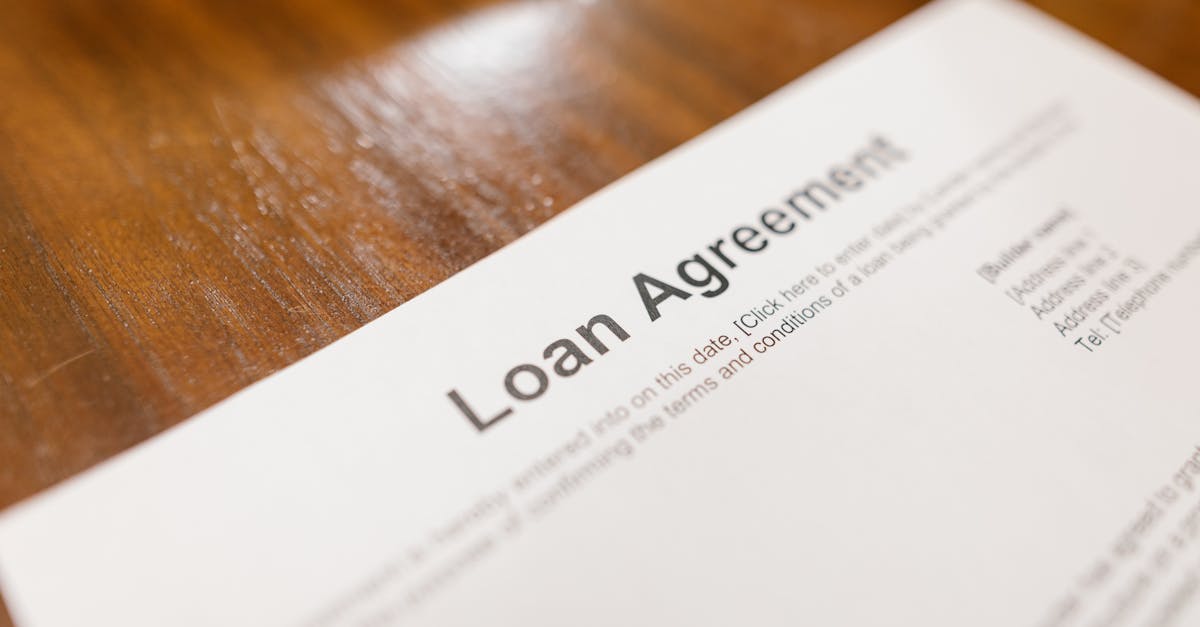
FHA Streamline Refinance and Mortgage Insurance
Homeowners often seek ways to reduce their monthly mortgage payments. The FHA Streamline Refinance program offers a unique opportunity to achieve this by allowing borrowers to refinance their existing loans without the need for extensive documentatio...
Read more →
FHA Streamline Refinance for Investment Properties
Understanding the costs of an FHA streamline refinance is essential before proceeding with the process. Borrowers may encounter several fees, including the upfront mortgage insurance premium. This fee is typically added to the loan balance and can be...
Read more →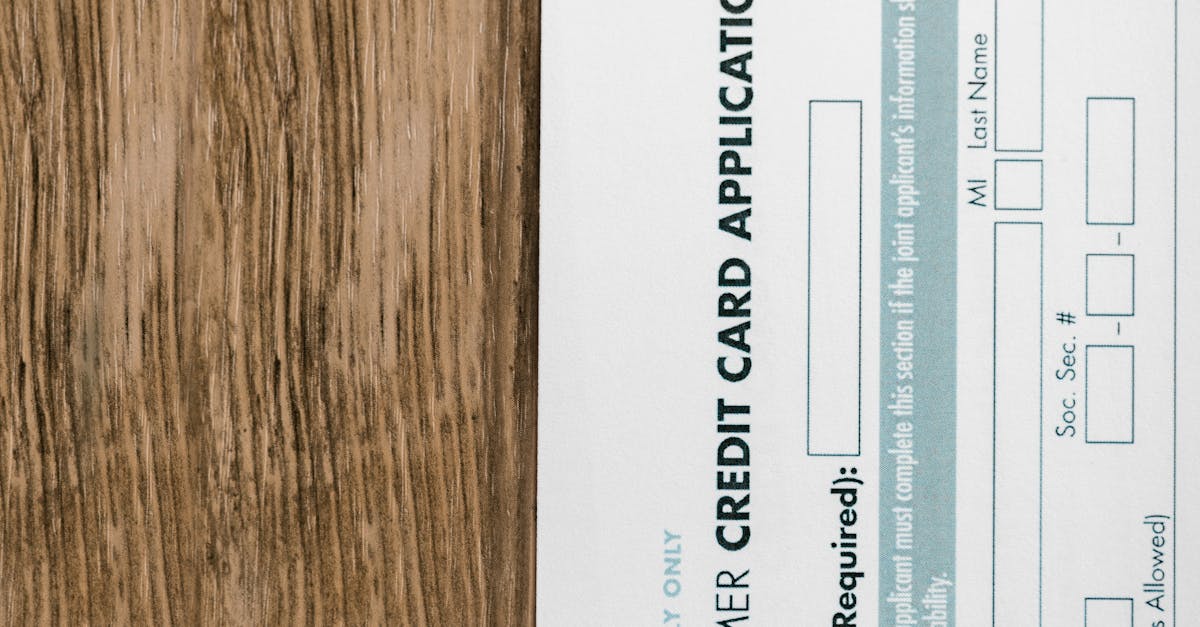
FHA Streamline Refinance vs. Conventional Refinance
When considering a conventional refinance, it's essential to keep in mind the range of costs involved. Application fees, appraisal fees, and title insurance are common expenses that borrowers may encounter during the refinancing process. Additionally...
Read more →
Understanding FHA Streamline Refinance Closing Costs
When securing a mortgage, understanding the various components of property ownership becomes essential. Title insurance plays a crucial role in protecting both lenders and homeowners from potential disputes over property ownership. It serves as a saf...
Read more →
Benefits of FHA Streamline Refinance
Homeowners seeking financial relief may find that refinancing their existing mortgages through an FHA Streamline option significantly lowers their monthly payments. These programs often allow borrowers to take advantage of more competitive interest r...
Read more →
FHA Streamline Refinance Eligibility Requirements
Lenders typically require proof of stable employment and consistent income to ensure borrowers are capable of meeting their mortgage obligations. This verification often includes providing pay stubs, tax returns, and bank statements. Full-time employ...
Read more →
How to Apply for FHA Streamline Refinance
A Loan Estimate outlines the terms of a mortgage, including the interest rate, monthly payment, and closing costs. This document is crucial for borrowers considering an FHA Streamline Refinance, as it provides transparency regarding the financial imp...
Read more →